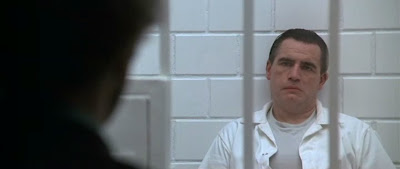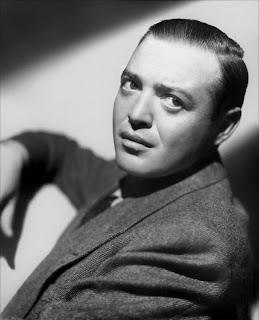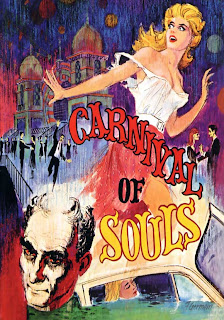lundi 16 décembre 2013
lundi 11 novembre 2013
vendredi 30 août 2013
ABOUT MIYAZAKI HAYAO'S SO-CALLED REVISIONISM, ABOUT THE SO-CALLED INEXISTENCE OF A LEFT IN JAPAN, ABOUT REAL NEGATIONISM IN JAPAN.
ABOUT MIYAZAKI'S "REVISIONNISM"
I am fed up by what I read about Miyazaki's "Kaze Tachinu", coming from people who haven't seen the movie which hasn't been released outside Japan.
Kaze Tachinu is supposed to be a "right wing japanese movie".
I'd like to decide by myself after having seen it. But I find difficult to imagine that a man like Miyazaki can make a negationistic and « right wing japanese movie ». I saw almost every movie he made and I always felt in them a hatred of militarism and wars.
And I read recently what he wrote about the comfort women ("For the comfort women problem, for the humiliation of the various peoples [of Asia], we must properly apologize and must pay proper compensation."), I read recently what he wrote about Abe Shinzo's intention to revise Article 9 of the japanese constitution. (Link)
The best part is
that at the same time in Japan some people call him « a
traitor » and his movie « anti-japanese ».
INEXISTENCE OF A
LEFT IN JAPAN?
When
I read as a comment on Kaze Tachinu, coming from an american, that
there is no left in Japan, I first wondered if there is a left in the
USA, in France, Germany, Italy, Spain or anywhere else...
I'd like to remind that just after the war japanese workers fought for their rights, there were strikes in Japan, the left parties were emerging. Mac Arthur forbade a general strike in 1947 and forbade the right to strike in the public service in 1948.
Not to mention the social movements in the 70's, or the support to Palestine.
Maybe nowadays there is no more left in Japan, but I don't see one in Europe or in the States...
I'd like to remind that just after the war japanese workers fought for their rights, there were strikes in Japan, the left parties were emerging. Mac Arthur forbade a general strike in 1947 and forbade the right to strike in the public service in 1948.
Not to mention the social movements in the 70's, or the support to Palestine.
Maybe nowadays there is no more left in Japan, but I don't see one in Europe or in the States...
ABOUT
REVISIONISM IN JAPAN
First I'd like to
talk about the International
Military Tribunal for the Far East (Tokyo trial), which I personaly
consider as a caricature of trial, where only 28 persons were
charged, and where koreans were not invited, and where nothing was
said about the comfort women.
During this “trial”, the Prince Asaka Yasuhiko, uncle of Hirohito, who has been involved in the Nanjing killings, was never charged because of Mac Arthur's decision to spare all the members of the emperial family.
Neither Ishii Shirô was charged. He ran Unit 731, he and other leaders of Unit 731 were arrested by the american army but were given immunity in exchange of the results of their so-called researches, which have probably been used by the americans during the war in Korea.
Maybe if the Tokyo trial had looked like the Nuremberg trial Japan would not have now the problem they have about revisionism.
Revisionism in various ways, japanese Prime Ministers' visits to the Yasukuni shrine, statements by Abe denying the responsability of Japan or of the japanese army concerning the comfort women, statements by Osaka mayor Hashimoto Toru declaring that the system of comfort women was a necessity, Nagoya mayor Kawamura Takashi denying the massacres in Nanjing, stinking mangas by the mangaka Kobayashi Yoshinori denying everything and dreaming about a return to the bad times of Japan...
During this “trial”, the Prince Asaka Yasuhiko, uncle of Hirohito, who has been involved in the Nanjing killings, was never charged because of Mac Arthur's decision to spare all the members of the emperial family.
Neither Ishii Shirô was charged. He ran Unit 731, he and other leaders of Unit 731 were arrested by the american army but were given immunity in exchange of the results of their so-called researches, which have probably been used by the americans during the war in Korea.
Maybe if the Tokyo trial had looked like the Nuremberg trial Japan would not have now the problem they have about revisionism.
Revisionism in various ways, japanese Prime Ministers' visits to the Yasukuni shrine, statements by Abe denying the responsability of Japan or of the japanese army concerning the comfort women, statements by Osaka mayor Hashimoto Toru declaring that the system of comfort women was a necessity, Nagoya mayor Kawamura Takashi denying the massacres in Nanjing, stinking mangas by the mangaka Kobayashi Yoshinori denying everything and dreaming about a return to the bad times of Japan...
lundi 27 mai 2013
About Alice in den Städten
Wim Wenders, 1973
I watched this morning Alice in the cities with a very precious friend.
I could have sweared I have seen this film a long time ago, but I realized I had this feeling because a friend told me so much about it many years ago that I convinced myself I saw it, so I saw it this morning for the first time in my life.
There are some movies by Wenders I'll never forget, like Im Lauf der Zeit (Kings of the road), Falsche Bewegung (The wrong move), Der Himmel über Berlin (Wings of desire), and now there is a new one on my list.
In Alice in den Städten, Wenders talks already about wandering, physical or mental, through the character of Philip Winter, wonderfully played by Rüdiger Vogler.
The first time we meet him he is travelling through the USA and taking photos with his Polaroid, probably searching to prove to himself his own existence. There is a huge feeling of emptiness and meaningless, as when he says "Photos never show what we have seen".
Winter is also a self-centered man, unable to listen what other people say. When he asks his friend if she is allright, she answers no but he doesn't even hear her and talks only about himself.
When he meets Alice and her mother at the airport, he doesn't seem very interested about what the mother says.
And when he is in charge with Alice, we almost feel his irritation. The moment he begins to change is probably when Alice is crying in the toilets in the airport because her mother wasn't on the flight.
From this moment he tries to help her to find her grand-mother in Germany, in the Ruhrgebiet, his own homeland, and he begins to open to tenderness.
After having taken photos, he is photographed by Alice, and later they go to a photo booth and take photos of both of them together, the last one being a photo where they both smile.
In addition to the characters and the actors, I enjoyed a lot the music, the concert of Chuck Berry or the young boy huming On the road again near a jukebox.
I loved the feeling we are watching a world which is disappearing, like the old houses condemned to be destroyed.
And there is a very short moment in the movie which moved very much, a young boy biking, because I had the strong feeling to "intrude" in my most precious friend's childhood.
I could have sweared I have seen this film a long time ago, but I realized I had this feeling because a friend told me so much about it many years ago that I convinced myself I saw it, so I saw it this morning for the first time in my life.
There are some movies by Wenders I'll never forget, like Im Lauf der Zeit (Kings of the road), Falsche Bewegung (The wrong move), Der Himmel über Berlin (Wings of desire), and now there is a new one on my list.
In Alice in den Städten, Wenders talks already about wandering, physical or mental, through the character of Philip Winter, wonderfully played by Rüdiger Vogler.
The first time we meet him he is travelling through the USA and taking photos with his Polaroid, probably searching to prove to himself his own existence. There is a huge feeling of emptiness and meaningless, as when he says "Photos never show what we have seen".
Winter is also a self-centered man, unable to listen what other people say. When he asks his friend if she is allright, she answers no but he doesn't even hear her and talks only about himself.
When he meets Alice and her mother at the airport, he doesn't seem very interested about what the mother says.
And when he is in charge with Alice, we almost feel his irritation. The moment he begins to change is probably when Alice is crying in the toilets in the airport because her mother wasn't on the flight.
From this moment he tries to help her to find her grand-mother in Germany, in the Ruhrgebiet, his own homeland, and he begins to open to tenderness.
After having taken photos, he is photographed by Alice, and later they go to a photo booth and take photos of both of them together, the last one being a photo where they both smile.
In addition to the characters and the actors, I enjoyed a lot the music, the concert of Chuck Berry or the young boy huming On the road again near a jukebox.
I loved the feeling we are watching a world which is disappearing, like the old houses condemned to be destroyed.
And there is a very short moment in the movie which moved very much, a young boy biking, because I had the strong feeling to "intrude" in my most precious friend's childhood.
samedi 6 avril 2013
Hannibal Lecter
Last thursday NBC broadcast the first episode of Hannibal starring Mads Mikkelsen as Hannibal Lecter.
Hannibal Lecter's character has been created in 1981 by Thomas Harris in Red dragon, and appeared in The silence of the lambs (1988), Hannibal (1999) and Hannibal's rising (2006).
From my point of view, only Red dragon and The silence of the lambs are good novels, the others are much weaker.
From my point of view, only Red dragon and The silence of the lambs are good novels, the others are much weaker.
The first actor to play Lecter (Lektor in the film) was Brian Cox in 1986 in Michael Mann's excellent adaptation of Red Dragon, Manhunter. But Mann (like Harris) focus more on Will Graham's character, a FBI profiler, and on a serial killer called The tooth fairy.
Brian Cox
The second movie featuring Hannibal Lecter, also as a secondary character, is Jonathan Demme's The silence of the lambs, in 1991, from Harris' second novel. This time Anthony Hopkins plays Lecter, differently from Brian Cox, maybe more exhuberant and ironic, making his character kind of attractive.
Anthony Hopkins
The movie is successful and will lead to three very needless film adaptations of Hannibal, Red dragon and Hannibal's rising, featuring again Anthony Hopkins in Ridley Scott's Hannibal (2001), Brett Ratner's awful Red dragon (2002), and Gaspard Ulliel in Peter Webber's Hannibal's uprising (2007).
Gaspard Ulliel
Gaspard Ulliel
From what I saw, the better performance as Hannibal Lecter might be Mads Mikkelsen's, he seems to give him a dark side and a sophistication Cox and Hopkins lacked...
vendredi 5 avril 2013
Directors who made only one full-length movie
Peter Lorre 1904–1964
Der Verlorene 1951
Here is the movie:
https://www.youtube.com/watch?v=R7cG2c-na34
Charles Laughton 1899 - 1962
The night of the hunter 1955
Marlon Brando 1924–2004
One-Eyed Jacks 1961
Herk Harvey 1924–1996
Carnival of Souls 1962
Leonard Kastle 1929–2011
The Honeymoon Killers 1969
Barbara Loden 1932–1980
Wanda 1970
Dalton Trumbo 1905–1976
Johnny got his gun 1971
Conny Templeman
Nanou 1986
Kondou Yoshifumi (1950 - 1998)
mimi wo sumaseba (Whisper of the hearth) 1995
Liev Schreiber 1967
Everything Is Illuminated 2005
YAKUSHO Kôji 1956
gama no abura (Toad's oil) 2009
Trailer here:
http://youtu.be/gtxJY7tvYLg
Angelina Jolie 1975
In the land of blood and honey 2011
Thanks to Rüdiger for Nanou and mimi wo sumaseba and to Damien for The night of the hunter!
Here is the movie:
https://www.youtube.com/watch?v=R7cG2c-na34
Charles Laughton 1899 - 1962
The night of the hunter 1955
Marlon Brando 1924–2004
One-Eyed Jacks 1961
Herk Harvey 1924–1996
Carnival of Souls 1962
Leonard Kastle 1929–2011
The Honeymoon Killers 1969
Barbara Loden 1932–1980
Wanda 1970
Dalton Trumbo 1905–1976
Johnny got his gun 1971
Conny Templeman
Nanou 1986
Kondou Yoshifumi (1950 - 1998)
mimi wo sumaseba (Whisper of the hearth) 1995
Liev Schreiber 1967
Everything Is Illuminated 2005
YAKUSHO Kôji 1956
gama no abura (Toad's oil) 2009
Trailer here:
http://youtu.be/gtxJY7tvYLg
Angelina Jolie 1975
In the land of blood and honey 2011
Quentin Tarantino
OK, Tarantino is not Ozu. But I love
his world, I love every movie he made, from Reservoir dogs to Django
unchained.
As far as I can remember, the first one
I saw was Pulp fiction and I must confess I didn't like it. Then I
watched Jackie Brown and I fell for Tarantino. So I watched again
Pulp fiction, and I discovered Reservoir dogs.
Since I became a fan...
RESERVOIR DOGS 1992
PULP FICTION 1994
JACKIE BROWN 1997
KILL BILL: VOLUME 1 2003
KILL BILL: VOLUME 2 2004
DEATH PROOF 2007
INGLOURIOUS BASTERDS 2009
DJANGO UNCHAINED 2012
Inscription à :
Commentaires (Atom)













































